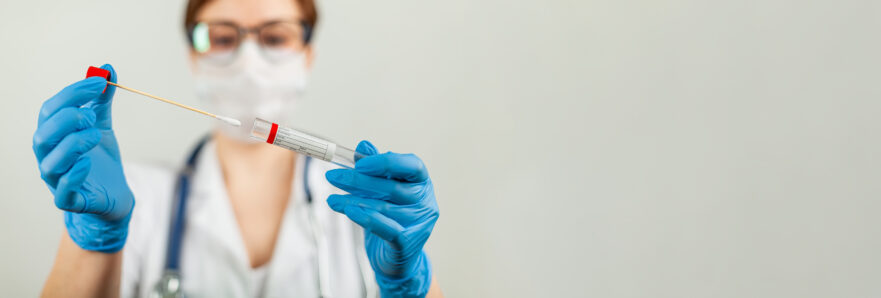Timely and reliable testing is important in controlling the COVID-19 pandemic. Nasopharyngeal swab RT-PCR testing is often used as the main diagnostic test method because it yields early results with moderate sensitivity and excellent specificity. The frequency of complications was extremely low in a study recently published in JAMA Network Otolaryngology-Head & Neck Surgery. Per the study, all complications seemed to involve an incorrect sampling technique: excess use of fore or an overly cranial direction of the swab. While the patients who experienced broken swabs fared well, the patients with epistaxis had rockier recuperations and the complications also exposed personnel to the risk of an aerosol-generating procedure.
During the 7-month study period, 643,284 SARS-CoV-2 RT-PCR tests were performed. Eight complication-related visits were identified in 2,899 otorhinolaryngology ED patients, 4 nasal bleeds and 4 broken swabs, all occurring immediately after sampling. None of the 8 patients tested positive for COVID-19. Based on the results, the risk or a severe complication requiring specialist-level care after SARs-CoV-2 nasopharyngeal swab testing is extremely low. Nonetheless, complications involve anatomically challenging locations and may be life threatening.
To avoid complications, correct sampling techniques are crucial. The newer anterior nares sampling makes the task much simpler and less invasive however most medical centers are using the nasopharyngeal swab to date. Access the documents on HealthCap USA regarding proper swab technique and different options for obtaining samples. Stay well, mask up indoors and stay tuned!
